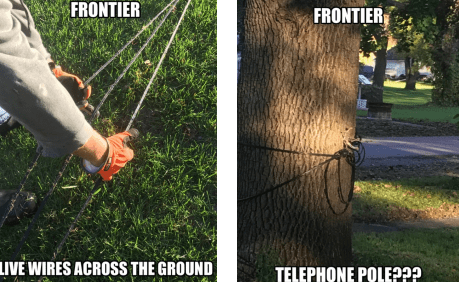
(Image courtesy: Minnesota Public Radio)
Minnesota regulators slammed the performance of Frontier Communications in a highly critical 133-page report released Friday, describing a rogue phone company that appears to have knowingly violated at least 35 state laws and operating rules, while jeopardizing the lives and wellbeing of 100,000 Frontier customers in parts of northeastern and southern Minnesota and the Twin Cities metro area.
“Many of the issues reported by consumers show direct violations of Minnesota law and Commission rules, and indicate broad, systemic problems with Frontier’s service quality, recordkeeping and business operations,” the report concluded.
A year-long investigation by the Minnesota Commerce Department found ample evidence of Frontier’s terrible customer service, fraudulent billing, and its rapidly deteriorating and often decrepit landline network, sometimes left in disrepair for months or years with little regard for the safety of customers, workers, or the public.
As part of the investigation, seven public hearings were held last fall in Frontier’s Minnesota service area. The resulting report is based on more than 1,000 consumer complaints and statements, as well as Frontier’s responses to information requests by the Commerce Department.
In many cases, Frontier left health-compromised customers using landline-based health/safety monitoring services without phone service for over a month, putting cost-saving measures ahead of the safety of customers that need reliable phone service the most. The investigation also found “that orders for new telephone or internet access service, being a new source of revenue for Frontier, and a sales commission for the customer service representative, take priority over repairs of internet or phone.”
The report also blasted Frontier’s shoddy customer service department, described as “shocking” in the report. In dozens of complaints, customers reported correcting service problems was often a nightmare.
Decrepit Network Facilities Falling Off Poles and Drowned in Ditches

Frontier wireline pedestal in Kelsey, Minn., knocked over and submersed in ice water. (Image courtesy of: Mr. and Ms. Ulshafer)
Waterville, Minn. residents that have experienced frequent outages for years were given every excuse in the book by Frontier officials, at one point blaming a mouse in a central office for chewing through their phone lines. Frontier customer Harry Tolzman chronicled years of Frontier’s apparent ineptness in providing reliable phone and internet service to his rural part of Minnesota. His testimony to Minnesota regulators, reproduced in part below, explains a lot of what the report found wrong at Frontier Communications these days:
“[One day, Frontier] decided that they needed to rebury the telephone cable that was — that ran from Elysian to our rural route Waterville, so they contract[ed] with an outfit out of Indiana, Direct Line Communications Underground Burying, who in turn sublets to another company called Premier Underground. So one day these guys show up from Indiana and they needed to bore underneath State Highway 60 to get the cable from across the highway to our residence, which was on the north side of the highway. So they came out and they bored underneath the highway and they ran the cable and then they got into a big argument with the local technician as to where the cable was to run and so they got mad and left.
The next day another outfit, same, Premier Underground out of Indiana, shows up, and they were supposed to connect the cable from the highway down to the closest junction box, which is about 100 yards from my place to the road and it’s another 100 yards from the road to the nearest junction box. So they started in with their plow and they plowed up to the house and they hit some tree trunks and the plow would jump out of the ground.
Finally they got up to the house where I had decorative rock and they say, well, we can’t dig here so we’ll just lay it on top of the rock. And then wherever it jumped out of the ground because of a root, it’s buried about one inch below the ground, in other places it’s 8 or 10 inches, where it should be. So anyhow, they said that’s the best we can do. Then they went across the road to make the connection to the nearest junction box, and they went right down the shoulder of the road about three feet off the blacktop and they were going down the road with their plow. And lo and behold, the state highway department drove by and happened to see them going right down the shoulder of the road. And so they questioned them, and lo and behold they didn’t have a permit to bury this cable.
So the next day a guy shows up and he hooks up his pickup to the cable and he pulls it all out. And the local technician comes out and he lays a temporary line on top of the ground over to where they had plowed underneath the road, and he made the connection so we could get our telephone service back. And they said they would be back to re-bury it in the proper right-of-way position as soon as they had the proper permits. That was two and a half years ago. And this cable is laying in the road ditch, and meanwhile the state highway department came along and they mowed the road ditch and they cut the cable. So they replaced the cable again. And then another time a snowmobile took the cable out. So that cable still lies there strung between the sumac bushes so that they can’t mow it when they mow the road ditch.
And I keep calling these people to get this fixed and they keep telling me, well, they don’t have the permit yet. So I called the highway department in Mankato and they say there’s been no application for a permit to re-bury your cable. In the interim, I had opened up a complaint with the Federal Communications Commission, which is located in Washington, D.C., and they in turn responded to me. And Frontier had the gall to tell them that they had investigated the above statements and offered the following resolution. Upon the investigation, Frontier showed that the line was repaired as of August 11, 2017, Frontier will be burying the line on August 31, 2017. Frontier spoke with Mr. Tolzman and advised him of the above information. They had the gall to tell them it was fixed and that same problem is still there, the cable lies between the bushes. So whenever we have moisture or rain, we’ll be out of service for our landline phone. And it’s just very frustrating to have to call and get a customer service rep many states away that runs his routine check and tells you, well, the problem is not on their end, it’s in your house, and yet it’s never been a problem within the house.”

A Frontier installer draped a new line across this customer’s residential propane tank, and then left. (Image courtesy: (Image courtesy: Mark Steil, MPR News)
As Stop the Cap! reported in 2018, Frontier’s network infrastructure in Minnesota was literally falling off utility poles. Customers reported Frontier technicians used trees as makeshift utility poles, strung phone cables across yards and fields, unburied, and in one case, draped a phone cable over the customer’s propane tank. Despite months or years of complaints, Frontier repeatedly failed to repair infrastructure it knew or should have known was in disrepair, and in several documented cases, Frontier technicians dealt with the loudest complaining customers by swapping line pairs with a satisfied customer, silencing the complaining customer while giving their troublesome or failing line to another customer without their knowledge.
Company officials also lobbied Minnesota officials hard over the summer of 2018 to limit the scope of the investigation into its business practices in the state, claiming at one point that anything short of a gag order forbidding customers from complaining at public hearings about the performance of Frontier’s DSL service would “violate federal law” and “create false expectations and confusion for customers.”
“Holding public hearings directed to internet access service complaints would not be constructive because the Commission would be precluded from taking action concerning internet service rates or service quality using any information it may collect during the public hearings,” Frontier claimed.
Customer Service Hell
Elizabeth Mohr’s testimony described an experience typical of many Frontier complaints. When Mohr complained about the poor quality of her Frontier DSL service, which came nowhere near the 12 Mbps she was offered, Frontier unilaterally disconnected her service without notice, leaving her without phone service for 12 days. The company “lost” five of the six repair tickets assigned to Mohr’s disconnect complaint. Frontier later refused to reactivate her DSL service, claiming it had “no ports available,” despite the fact taxpayers helped subsidize the expansion of internet access in her neighborhood.
“We found it took us 47 of our hours on the phone with Frontier to get service, even though they sent us a flier that said you should be able to call and get it,” Mohr testified. “So 47 hours on the phone of our time, six tickets, five of which were closed with no answer. They never showed up.”
Frontier’s bad customer service isn’t a new experience for Mohr either.
 “You can get better service from them but you have to be willing to put up a fight. I have been hung up on, probably in the last 13 years, probably 200 times,” Mohr said. “When I would call and say, I have an issue with your network, they wouldn’t believe me. Between my husband and myself, we have 20 years of network administration. We could ping to their system and tell them where the problem was failing and they wouldn’t believe us, and they would hang up on us. So clearly, Frontier has a problem.”
“You can get better service from them but you have to be willing to put up a fight. I have been hung up on, probably in the last 13 years, probably 200 times,” Mohr said. “When I would call and say, I have an issue with your network, they wouldn’t believe me. Between my husband and myself, we have 20 years of network administration. We could ping to their system and tell them where the problem was failing and they wouldn’t believe us, and they would hang up on us. So clearly, Frontier has a problem.”
Shellie Metzler of Finlayson claimed she has to be placed on a waiting list to have her phone line repaired — something more in common with East Berlin in the 1970s than the United States in 2019. She waited over a year for repairs for her basic Frontier landline and DSL service, repeatedly being told in over 20 hours of phone calls with the company “there were no lines available.”
The wait was not worth it. After service was installed, Ms. Metzler reported, “I could not hear when on the phone because of the static. Also, each time the phone rang, the internet would go offline.”
Like many Minnesotans, Metzler is still paying for broadband internet service she is not receiving. Metzler was sold Frontier’s Broadband Ultra 12 Mbps DSL service.
 “I am receiving, if lucky, 1.2 Mbps,” Metzler reported. “Last week within two days the internet dropped over 100 times. Dropped service and slow internet speeds are everyday occurrences. I should not be charged for the 12 Mbps because I have never had it. I should not be charged for the 6 Mbps because I do not get that either.”
“I am receiving, if lucky, 1.2 Mbps,” Metzler reported. “Last week within two days the internet dropped over 100 times. Dropped service and slow internet speeds are everyday occurrences. I should not be charged for the 12 Mbps because I have never had it. I should not be charged for the 6 Mbps because I do not get that either.”
The report also had little positive to say about Frontier’s customer service department:
Subscribers received inaccurate information and expressed great frustration when dealing with Frontier’s customer service personnel, even characterizing the service as being rude and/or unhelpful. Customers also said Frontier’s customer service representatives would often refuse to transfer the customer to a supervisor or the supervisor would fail to return their call as requested.
Many customers reported that contacting Frontier was anything but convenient, describing long hold times prior to speaking with a customer service representatives. Also, several consumers reported that they believed Frontier representatives were unqualified, untrained, or otherwise provided them with inaccurate information. In some cases, representatives yelled at customers and accused them of being rude or inappropriate.
Frontier’s Repairs: ‘Like Placing a Band-Aid on a Hemorrhage’

Frontier’s “High Speed” 21st Century Network fantasy claims extend back to 2010 when former CEO Maggie Wilderotter was telling customers Frontier was loaded with fiber.
The state investigation also uncovered evidence that Frontier often “repairs” poor service for a complaining customer by swapping the bad line pair with another customer with good service who is not likely to complain when their service suddenly deteriorates:
Frontier’s practice is that, when one customer is out of service [or is receiving impaired service] and requests repair, in order to restore service to that subscriber, Frontier disconnects, without notice, the service of another subscriber, and “swaps” the other subscriber’s working lines or cards for the non-working line or card of the subscriber whose service is being restored.
A typical example is the public comment of Debra Boldt of Glen, Minn., who lives on a lake with some summer residents. Ms. Boldt reported that to restore service to one neighbor, Frontier switches non-working lines with the working line of a summer resident who may not know their service is disconnected until they next visit; and, when that person complains, Frontier will then switch the working line from a different resident.
Similarly, Tom Grant testified at the Lakeville public hearing that Frontier technicians have told him, “they basically move cards or switches to be able to solve the problem for that individual customer, while knowing full well that that creates havoc for others that reside on that same node.”
Wayne Nierenhausen testified that technicians have told him: “[W]hen they get a complaint, there’s some kind of card within that box that’s a quarter-mile from my house that they will change to basically whoever made the complaint to get faster speed, but then when another call is made, they’ll switch that card out, put it to whoever made the complaint, and then put the old card back in.”

Customer service problems particularly affect the elderly and infirm, who are the most likely to still have landline service.
The report also heavily criticized Frontier for covering up problems by miscoding trouble reports and service outages to avoid drawing regulator attention. Outages impacting regulated basic phone service were frequently classified as unregulated internet outages, coded as being the fault of the customer, or trouble tickets were closed before repairs were completed. Closing trouble tickets prematurely also extends an extra benefit to Frontier — the company will not credit customers for extended outages if the original trouble ticket is closed.
As a last resort, if Frontier deems repairs too costly, customers are told to “live with it.”
Medically Necessary Phone Service Repairs Ignored
The report also found Frontier’s unwillingness to expedite repairs for customers with serious medical issues were “shocking” because customers were often not informed service representatives have no authority to request a medical-related expedited repair, and notes placed on customer accounts by those representatives are routinely ignored. The company admitted the only way a customer can be flagged a medical priority customer is if a doctor certifies annually, in writing, there is a medical need to maintain reliable phone service:
A letter/document must be received from the customer’s physician annually certifying that a medical emergency exists and that phone service is essential, and that the letter or document must contain the following:
- State registration or license number of physician.
- Name and address of seriously ill person.
- Name, signature of licensed physician or public health official (nurse or physician’s assistant) certifying illness or medical emergency and date.
- Optional – Any services beyond local exchange service that may be necessary to reach customer’s doctor and that absence of such services would be a serious risk of inaccessibility of emergency medical assistance.
Customers are instructed to mail or fax the documentation to:
Frontier Correspondence
PO Box 5166
Tampa, FL 33675
Fax: 1- 888-609-9919
Billing Controversies
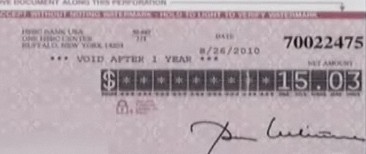
Frontier used to mail checks refunding credit balances to departing customers. Today they mail gift cards, occasionally with no balance on them.
The report also found many “direct violations” of Minnesota law and rules from the company’s billing practices. Customers reported Frontier misrepresented its “vacation rate,” offering discounted phone service during seasonal disconnects at vacation properties. Instead, many customers report being billed normal rates and were refused credits, even when the company admitted the problem was theirs and would be fixed.
Customers also report steep late fees for online payments made before the due date, because Frontier reserves the right to take at least five days (and sometimes more) to process online payments, and does not always honor the date of payments initiated by customers. Many others reported Frontier continued to bill closed accounts for months despite cancelling service. One customer who refused to pay several hundred dollars in new charges on his closed account had his credit ruined after Frontier reported him delinquent. A subsequent agreement to pay off the outstanding bills on the closed account in return for getting negative information removed from his credit report was later refused by Frontier… after the company cashed his check.
Customers who pass away while being Frontier customers had better share their account passwords with surviving relatives. As Tabitha Odegaard discovered after her father in law passed away in November 2017, Frontier will not cancel service for deceased customers without a proper account password. Odegaard told regulators she was still paying for service on behalf of her father-in-law in 2018.
Customers that plan to cancel service might be better off removing auto-pay from their account and not paying their last bill until a final bill is generated. Receiving refunds for cancelled service is a hit-or-miss affair at Frontier, according to the report. Customers must wait at least 90 days for a refund to arrive. Most customers end up with a gift card covering any credit balances, but some report their gift card arrived with a zero balance, or did not arrive at all. In such cases, customers have to wait an additional two months before a replacement card will be issued. One customer reported his refund took seven months to arrive, after getting a gift card with no balance on it. Other customers report only getting a credit balance on their monthly bill for their closed account, with no refund, gradually depleted by ongoing billing fees, taxes and surcharges that accrue each month. The credit balance runs out while waiting for a refund that never arrives.
Report Recommends Fundamental Changes and Frontier Responds
 The report recommends that Frontier be required to refund or credit customers for service outages and unauthorized charges; add staffing to improve customer service; and increase investments in infrastructure and equipment.
The report recommends that Frontier be required to refund or credit customers for service outages and unauthorized charges; add staffing to improve customer service; and increase investments in infrastructure and equipment.
Frontier responded with a written statement, reading in part:
“Frontier strongly disagrees with the assertions in the Department of Commerce’s initial comments and is reviewing the Department’s filing with the Minnesota Public Utilities Commission. Frontier and its employees work hard to provide reliable, affordable telecommunications services to approximately 90,000 customers in Minnesota, many in rural communities where no other provider will invest in providing service. Frontier recognizes we experience service issues and delays from time-to-time with some of our customers. We are an ethical company committed to our customers and the Minnesota communities we serve. We take this matter seriously and will respond appropriately before the Public Utilities Commission.”
Minnesota Public Radio reported in October 2018 that Frontier has slashed its technical workforce by 50% in Minnesota over the last five years. (4:08)
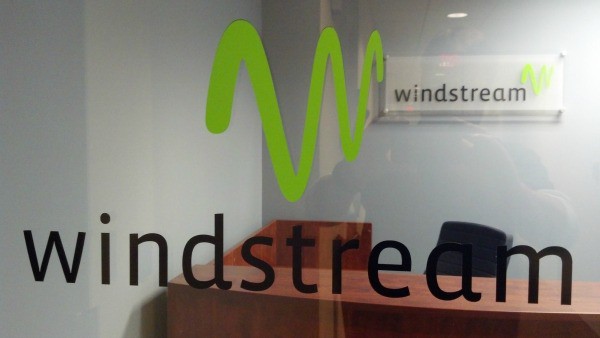 Windstream Holdings filed a suit against Charter Communications (d/b/a Spectrum) on Friday, claiming the cable company is trying to poach its customers with a “despicable” false advertising campaigned designed to make people believe the phone company’s days are numbered.
Windstream Holdings filed a suit against Charter Communications (d/b/a Spectrum) on Friday, claiming the cable company is trying to poach its customers with a “despicable” false advertising campaigned designed to make people believe the phone company’s days are numbered.




 Subscribe
Subscribe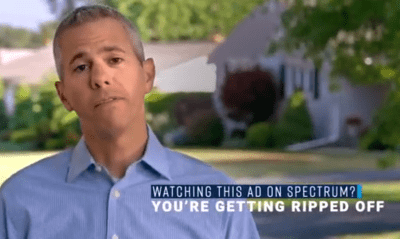
 Brindisi has bristled over the New York State Public Service Commission’s decision to repeatedly extend the deadline given to Charter to file an orderly exit plan winding down its cable operations in the state. The most recent extension was approved on Wednesday, now giving Charter Communications until April 5, 2019 to appeal the Commission’s decision and until May 9, 2019 to file its six-month exit plan.
Brindisi has bristled over the New York State Public Service Commission’s decision to repeatedly extend the deadline given to Charter to file an orderly exit plan winding down its cable operations in the state. The most recent extension was approved on Wednesday, now giving Charter Communications until April 5, 2019 to appeal the Commission’s decision and until May 9, 2019 to file its six-month exit plan. Stop the Cap! today appealed to New York’s Freedom of Information Law Officer to force Charter Spectrum to unredact customer complaint statistics on Charter Communication’s performance in New York since its 2016 merger with Time Warner Cable.
Stop the Cap! today appealed to New York’s Freedom of Information Law Officer to force Charter Spectrum to unredact customer complaint statistics on Charter Communication’s performance in New York since its 2016 merger with Time Warner Cable.





 “You can get better service from them but you have to be willing to put up a fight. I have been hung up on, probably in the last 13 years, probably 200 times,” Mohr said. “When I would call and say, I have an issue with your network, they wouldn’t believe me. Between my husband and myself, we have 20 years of network administration. We could ping to their system and tell them where the problem was failing and they wouldn’t believe us, and they would hang up on us. So clearly, Frontier has a problem.”
“You can get better service from them but you have to be willing to put up a fight. I have been hung up on, probably in the last 13 years, probably 200 times,” Mohr said. “When I would call and say, I have an issue with your network, they wouldn’t believe me. Between my husband and myself, we have 20 years of network administration. We could ping to their system and tell them where the problem was failing and they wouldn’t believe us, and they would hang up on us. So clearly, Frontier has a problem.” “I am receiving, if lucky, 1.2 Mbps,” Metzler reported. “Last week within two days the internet dropped over 100 times. Dropped service and slow internet speeds are everyday occurrences. I should not be charged for the 12 Mbps because I have never had it. I should not be charged for the 6 Mbps because I do not get that either.”
“I am receiving, if lucky, 1.2 Mbps,” Metzler reported. “Last week within two days the internet dropped over 100 times. Dropped service and slow internet speeds are everyday occurrences. I should not be charged for the 12 Mbps because I have never had it. I should not be charged for the 6 Mbps because I do not get that either.”


 The report recommends that Frontier be required to refund or credit customers for service outages and unauthorized charges; add staffing to improve customer service; and increase investments in infrastructure and equipment.
The report recommends that Frontier be required to refund or credit customers for service outages and unauthorized charges; add staffing to improve customer service; and increase investments in infrastructure and equipment.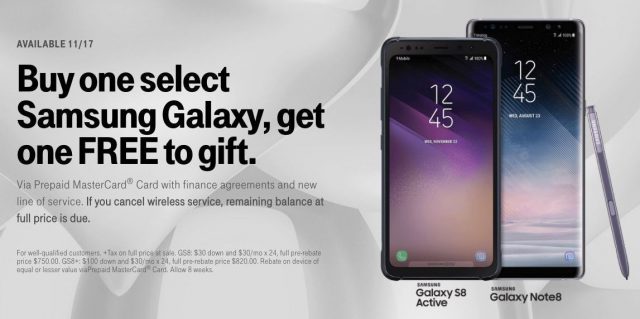 Wireless carriers like AT&T and Verizon Wireless have reneged on promotions offering customers free phones and “buy one, get one free” deals that leave customers on the hook for hundreds of dollars in equipment charges.
Wireless carriers like AT&T and Verizon Wireless have reneged on promotions offering customers free phones and “buy one, get one free” deals that leave customers on the hook for hundreds of dollars in equipment charges. Many customers are tripped up by the fine print in promotional offers that frequently contain complicated conditions and opaque language. Some insist company representatives assured them that the promotion was valid only to find out later they were misled. In fact many promotions contain strict provisions that, if not followed precisely, invalidate the promotion.
Many customers are tripped up by the fine print in promotional offers that frequently contain complicated conditions and opaque language. Some insist company representatives assured them that the promotion was valid only to find out later they were misled. In fact many promotions contain strict provisions that, if not followed precisely, invalidate the promotion.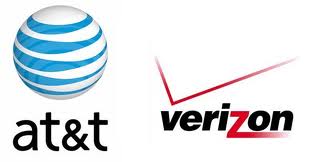 in their “free” phone and walk away from several delayed reimbursement credits before getting they can obtain their next new device.
in their “free” phone and walk away from several delayed reimbursement credits before getting they can obtain their next new device.